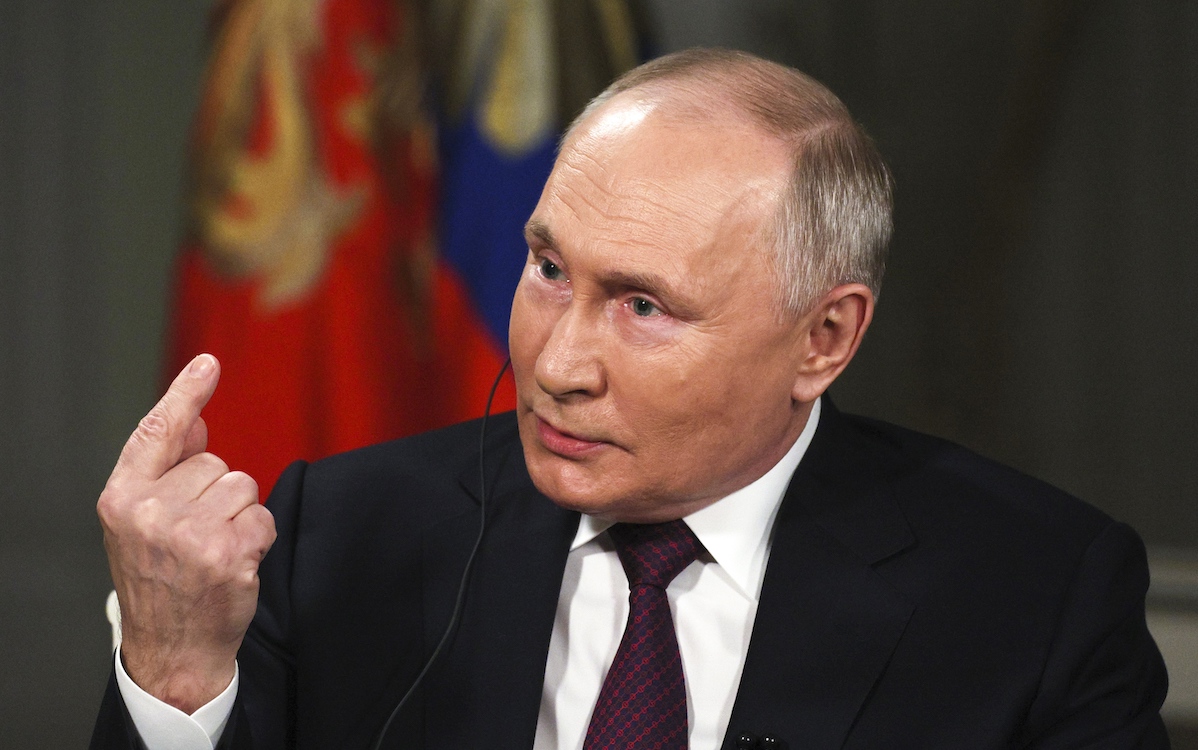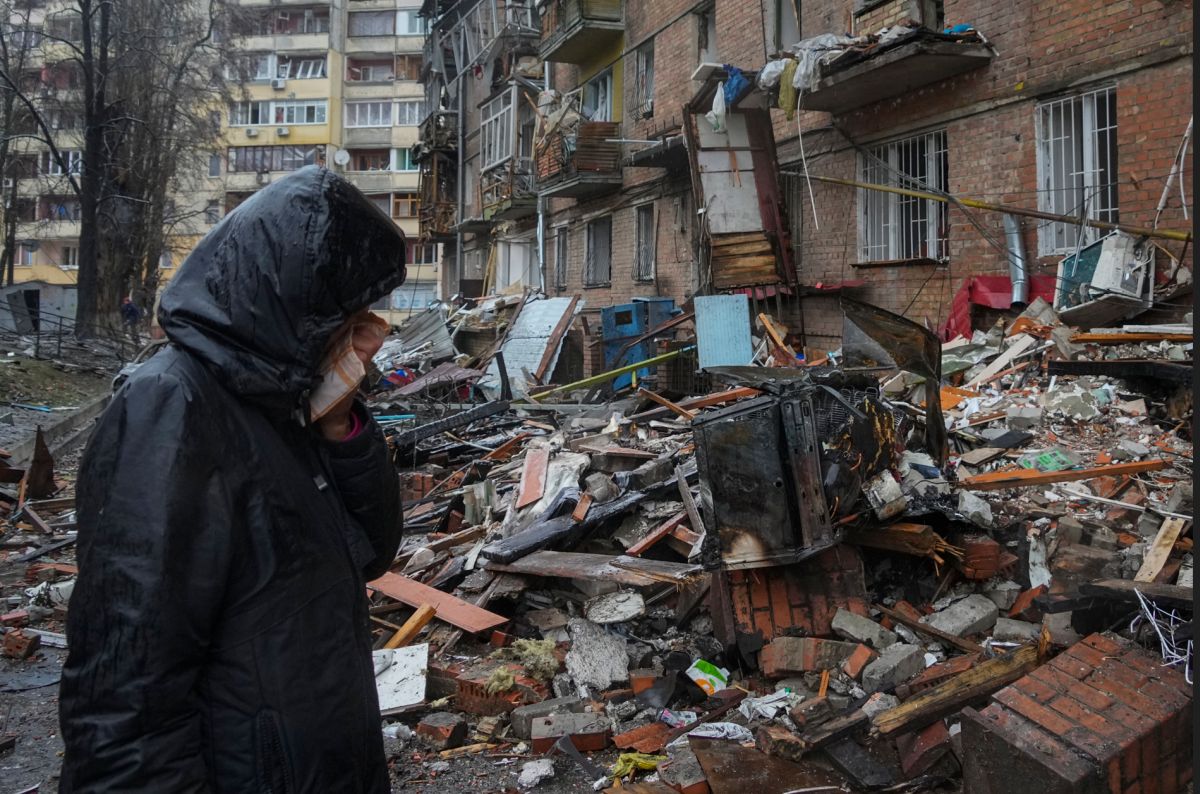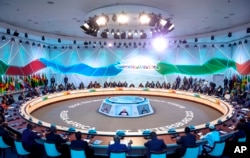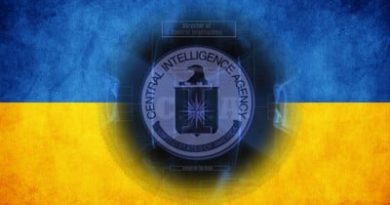3 conspiracy theories Putin pushed in Carlson interview
Russian President Vladimir Putin voiced numerous unsubstantiated and conspiratorial views during his sprawling conversation with former Fox News host Tucker Carlson.
Carlson, who promoted the interview as an antidote to what he described as “corrupt” media, offered little pushback.
Over two hours and six minutes, Carlson provided Putin a platform to push baseless narratives — at times assisting with the effort.
When Carlson asked Putin who was responsible for blowing up Nord Stream, the natural gas pipeline network that runs from Russia to Europe, Putin blamed the U.S. for the 2022 incident — and Carlson appeared to concur. Unmentioned: No state has taken responsibility for the blasts, which were ruled deliberate.
At moments, it seemed Carlson was gearing up to challenge Putin, but he ended up conceding the point.
Carlson asked Putin whether Russia would release Wall Street Journal reporter Evan Gershkovich, 32, who has been held for close to a year on espionage charges stemming from a reporting trip in Russia. “The guy’s obviously not a spy,” Carlson said before offering, “Maybe he was breaking your law in some way, but he’s not a super spy, and everybody knows that.” Putin responded by insisting otherwise. “He’s not just a journalist,” Putin said before the line of questioning ended.
Unmentioned: The U.S. State Department, The Wall Street Journal and the Committee to Protect Journalists insist Gershkovich is being wrongly held. The Wall Street Journal responded that the attempts to portray Gershkovich as anything but a journalist were “total fiction.”
With Putin signaling to Tucker Carlson that he is open to a prisoner exchange that would free Evan Gershkovich, the @WSJ has issued this new statement: pic.twitter.com/mwqBYFHIvN
— Brian Stelter (@brianstelter) February 9, 2024
Carlson’s rhetoric has been increasingly Russia friendly in recent years, with Carlson questioning the United States’ support for Ukraine following Russia’s Feb. 24, 2022, invasion and pushing Kremlin propaganda about the war. Carlson’s remarks have been broadcast by Russian state media on multiple occasions.
Carlson didn’t fact-check Putin, so we did. Here are three conspiracy theories Putin shared:
Putin’s claim that ‘Ukraine is an artificial state’
Putin began the interview with a 30-minute near filibuster detailing the history of Russia and Ukraine by going back centuries. “Ukraine is an artificial state that was shaped at Stalin’s will,” Putin said, referring to former Soviet Union leader Joseph Stalin.
We’ve heard this from Putin before. What’s now Ukraine, he argued, was part of Russian territory as far back as the ninth century. In the interview, he said the Ukrainian state was established as part of the Soviet Union in 1922, and had never existed before then. After World War II, Ukraine was given land, including from Poland, Hungary and Romania, to which it had no historical claim, he said.
Putin’s historical view is inaccurate and one-sided, historians told PolitiFact in 2022 after Putin launched the Ukraine war with a similar argument. Territory in Ukraine has been controlled by several countries or empires for hundreds of years before Russia gained hold.
“Putin’s aggression in Ukraine is justified through grievous historical distortions that conflate the Rus’ state, founded in the ninth century in Kyiv, with the Russian state, which only began to take shape in Moscow several hundreds of years later,” said Faith Hillis, a University of Chicago history professor.
Putin presents the Rus’ territory as Russia’s “primordial heritage” from more than 1,000 years ago, Hillis said.
“This distorted view of history is not Putin’s invention,” Hillis said. “It is a rehashing of a narrative crafted by conservative defenders of the Russian empire in the nineteenth century.”
Richard Arnold, a Muskingum University political science professor, said Putin’s reference to an “artificial state” may have something to do with the Soviet Theory of Ethnos, which holds that ethnic groups “were objective and natural, created in part by solar rays determining the abundance of crops in certain areas of the globe, and that the groups had a consciousness.”
“Putin probably believes Ukraine is not a sufficiently ancient nation to be a ‘real’ ethnos, a ‘real’ nation,” Arnold said. “We can decide ourselves how scientifically rigorous such a concept is, which, if applied to the U.S., would suggest it is really a British nation.”
Regardless of Putin’s theory, Arnold said, there were Ukrainian intellectuals in the 19th century who adopted nationalist language when discussing their country.
Erik Herron, a West Virginia University political science professor, said the origins of Ukrainian statehood are complicated and have long been debated, but documented references to Ukraine are centuries old.
“Regardless of when a formal Ukrainian state emerged, it was not ‘shaped at Stalin’s will,’ and the foundations for it were built over centuries through the development of a unique national identity,” Herron said.

In this photo the Sputnik news agency released Feb. 9, 2024, Russian President Vladimir Putin gestures while speaking during an interview with former Fox News host Tucker Carlson on Feb. 6, 2024. (Sputnik, via AP)
Putin’s claim that Russia is pursuing ‘denazification’ in Ukraine
Putin has justified his invasion of Ukraine by claiming that Russia seeks to “denazify” Ukraine. During the interview, Carlson asked whether Putin had achieved the goals he had when he invaded Ukraine.
“No,” Putin replied. “We haven’t achieved our aims yet because one of them is denazification. This means the prohibition of all kinds of neo-Nazi movements.”
There’s no evidence Ukraine is a Nazi state. This falsehood has been fact-checked by experts and news organizations, including PolitiFact. Historians who study genocides and the Holocaust decried Putin’s narrative as “factually wrong, morally repugnant and deeply offensive.”
Zelenskyy is Jewish and lost family in the Holocaust.
Neo-Nazi groups exist in Ukraine — as they do in the U.S. and Russia — but Putin overstates their power. In 2014, the white-supremicist-led Azov battalion played a key role in fighting Russian separatists, and the battalion received appreciation from some within the Ukrainian government, but experts say it represents a small portion of Ukraine’s military, PolitiFact reported in 2022.
The U.S. State Department has said Putin exploits a grain of truth to “manipulate international public opinion by drawing false parallels between Moscow’s aggression against Ukraine and the Soviet fight against Nazi Germany.”
John Herbst, senior director of the Atlantic Council’s Eurasia Center and former U.S. ambassador to Ukraine, pointed to a 2019 Pew Research Center poll that found Ukraine was among the European countries with the highest percentage of people who expressed “favorable views” of Jews.
“If Ukraine was a hotbed of Nazis, then presumably antisemitism is going to be a disproportionately large problem,” Herbst said, adding that before Zelenskyy, Ukraine had a Jewish prime minister, Volodymyr Groysman.

A woman cries in front of a house damaged during Russian shelling in the town of Vyshgorod near Kyiv, Ukraine, on Nov. 24, 2022. (AP)
The claim that the U.S. is run by a shadow government, not elected leaders
With Carlson’s prompting, Putin also argued that the U.S. isn’t being run by its elected officials.
“Twice you’ve described U.S. presidents making decisions and then being undercut by their agency heads,” Carlson summarized. “So it sounds like you’re describing a system that’s not run by the people who are elected, in your telling.”
“That’s right, that’s right,” Putin said.
PolitiFact has repeatedly fact-checked the baseless conspiracy theory that “the deep state,” “a secret cabal,” or “a shadow government” plays an outsized role in American governance.
Experts said Putin knew Carlson’s audience.
“Putin understands who listens to Tucker Carlson, and he knows that former President Trump and his allies have made references to the ‘deep state,’” Herron said. “This type of claim only fuels divisions in the U.S., and that is one of Putin’s goals.”
Scott Radnitz, professor at the Jackson School of International Studies at the University of Washington, said that by “signaling his agreement with Republican beliefs and repeating their talking points,” Putin also hoped to “build on their admiration for him.”
Todd Helmus, a senior behavioral scientist at Rand Corp. who has studied Russia-led propaganda campaigns, said that Putin’s task for the interview was to speak to “hardcore conservatives.” Pushing this narrative was Putin’s attempt to “accentuate any divisions” and advance lines that might “harden opposition” to the U.S. providing continued support for Ukraine.
That Congress has not provided more aid for Ukraine helps disprove the idea of a shadow government working in Ukraine’s favor, Herron said.
“The president does not have deep state operatives or a shadow government funneling resources to Ukraine in defiance of Congress,” Herron said. Elected leaders make budget decisions, “and their preferences do not match the president’s preferences. Until this changes, aid for Ukraine’s war efforts is not coming from the U.S. budget precisely because of the decisions of elected leaders.”
RELATED: Journalists haven’t ‘bothered’ to interview Putin? No, Tucker Carlson’s claim is Pants on Fire!
RELATED: Lie of the Year 2022: Putin’s lies to wage war and conceal horror in Ukraine
RELATED: Putin’s one-sided history of Ukraine’s relationship with Russia


